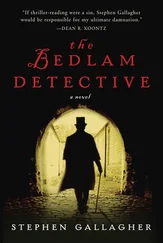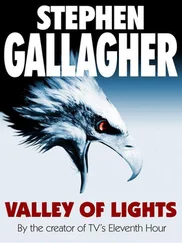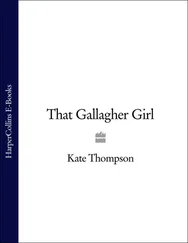“Porter,” he said. He took off his helmet with shaking hands. Small pockmarks covered his temples and cheeks. He took a swig of bottled water. “We are so fucked.”
“ Shaku maku , bro,” I said, hoping the native greeting would both relax and ground him. “What happened?”
He told me they’d been at the checkpoint for seven hours, since before dawn. There hadn’t been much traffic all morning, either foot or vehicle, just the steady drip to which we’d all been subjected. They’d been set to rotate back to the outpost an hour earlier, until higher had ordered them to stay indefinitely because battalion intelligence had determined that “military-age males might use the religious pilgrimage as cover to run guns into Ashuriyah in a white sedan.”
“I asked if one of the targets was named Mohammed,” he said. “They said to stop being a smartass and report back when we found something.”
His platoon’s dismount team had been finishing the search of another car when the white one appeared, moving quickly and traveling west. It hadn’t slowed at the first orange cone.
“We’re well into this,” he said, his voice turning barbed. “They know the rules.”
He’d been in the stone guard shack when he heard the gunner and the dismounts yelling for the car to stop. It’d all happened so fast. When the car neared the second orange cone, the gunner opened up with the machine gun, aiming for the engine. Those were the rules of engagement. The gunner had followed the rules of engagement. The platoon leader pulled out a laminated index card from his breast pocket to reinforce this point; all soldiers were supposed to carry one, as it came printed with the updated rules for when it was okay to shoot and when it wasn’t, albeit in nebulous lawyer jargon that confused more than clarified. I patted my own breast pocket and found it empty. I must’ve left my card in the laundry again.
Except now it didn’t matter that those had been the rules of engagement. It didn’t matter that the car matched the description given to them by battalion intelligence. It only mattered that there hadn’t been any guns or IED-making materials or even a switchblade in the car. It only mattered that there were now two dead hajji civilians and three injured hajji civilians and the company commander was furious because the battalion commander was furious because the brigade commander was furious and he was so fucked, they were all so fucked. One of the dead men’s mothers was on the side of the road, and he couldn’t bring himself to go over there.
He sat down on the ramp and bowed his head against balled fists.
“Sayonara Station,” I muttered. “He was right.”
“Huh?”
“Never mind. Don’t worry about the crowd, man, I’ll handle that. And don’t worry about higher. I mean, these things happen. It’ll be okay.”
The void in his white, watery eyes told me he didn’t believe me. As I walked toward the gathering crowd, I realized that I didn’t believe myself, either.
About twenty Iraqis stood on the gravel, some of them pilgrims, others bystanders. Facing them was a group of first platoon soldiers tending to the wounded or the grieving. My men were helping. Doc Cork had his medical kit out; he was dressing the head wound of a gored Iraqi woman, telling her through Snoop to go to the hospital and yelling at Alphabet to find her bottled water. A jundi consoled a frightened boy squatting in the dirt. Chambers held back a pair of angry young men, skinny as thatch, who wanted to get to the white car on the road. Chambers told them to wait, and when they kept pressing forward, he squared his rifle like a pugil stick and pushed them back.
The mother was there, too, dressed in a cotton striped dress and a red head scarf, surrounded by consolers. She wailed in hot Arabic, thumping her chest and lifting her head skyward, as if wresting fault from above. She was short with wide shoulders, what my college friends would’ve called a Soviet plow, not that any of us had ever worked a farm. Trench-deep cracks in her face rose and fell through her skin. I got as close to her as the protective circle would allow — five feet or so — when an older man with a salt-and-pepper beard grabbed my forearm.
“ Fasil! ” he said, citrus on his breath and a large lip sore on his mouth. “ Fasil! ”
I looked at him with confusion and shook my arm free. He stared back with the hard, unblinking eye of poverty.
I took a step back. I’m no great Satan, I thought. He reached for my forearm again. I took another step back. He kept repeating the same word, so I turned to the soldiers and asked if anyone knew what he wanted.
“ Fasil ,” Snoop called out. He and Sipe were dealing with other enraged locals farther down the roadside. “Blood moneys America owes their family. To make things good.”
I pulled out my notepad and a pen, wrote down the outpost’s phone number, and handed it to the man. Then I pantomimed calling a telephone. He nodded slow, as if trapped in a fever dream.
The crowd gradually dispersed. Alphabet ran up to say that the commander wanted us at Camp Independence, “Time now.” The checkpoint was going to be crawling with field-grade officers soon. I patted Doc Cork on the shoulder as he packed up his medical kit and walked over to my platoon sergeant and terp.
“The driver was addicted to khat, according to one of his neighbors,” Sipe said, lighting a cigarette. “Might explain why he kept driving.”
“Khat is nothing,” Snoop said. “Children chew it. He just made a stupid mistake. Arabs, yo.”
I felt the distant pangs of a headache bearing down with the heat. The inside of my mouth was dry. I licked my chapped lips, shrugged, and began walking back to our vehicles.
“Another thing,” Sipe said. I turned around. “Your man, Haitham. He was here, in the minibus. Got hit with shrapnel in the neck from a ricochet. He bounced, though, before we got on scene. Something spooked him. Other than the dead guys, it’s all the Iraqis wanted to talk about.”
I didn’t know what to make of that, so I said nothing.
As we drove by the still-smoking white car, soldiers from first platoon were trying to pack the driver into a nylon body bag. Nearby, his two angry friends and the old man held the mother, still thumping her chest and wailing for answers. The soldiers zipped up the bag and carried it over to her.
So, I thought. That’s what a dead civilian means.
We had a few hours free at Camp Independence while the maintenance team checked the Strykers. The platoon scattered, most of the joes heading to the chow hall to gawk at female support soldiers. Chambers said he was off “to dip my pen in company ink,” which I presumed to be a reference to Sergeant Griffin.
I stopped at the shower trailer first. In a narrow fiberglass stall, behind a blue curtain covered with penguins, I washed away two weeks’ worth of grime. The other stalls were occupied, too, so the hot water faded quickly as I popped the blisters on my feet. The forever glare of the dead driver had lingered, but I shook free of it, along with paranoid thoughts of the soldiers in Karbala who were electrocuted to death in a KBR shower trailer like this one. Then I shampooed my hair. It didn’t take long, since Hog had given the entire platoon a buzz cut that morning. A few loose dark brown strands whirled around the shower’s drain before disappearing into the underbelly of the trailer. So long and farewell, I thought. Thank you for your service.
After toweling off, I brushed my teeth and shaved. The body in the mirror looked strange. Dark circles ringed his eyes like a raccoon’s. I called him Hotspur Six, and he called me the same. He looked younger than I remembered — something about the way his face collapsed in at the cheekbones and the way his chest concaved where finely tuned gym muscle used to be. I’d always thought experience was supposed to age people. He smiled toothily when I told him to, but I didn’t think he meant it.
Читать дальше




![Ally Carter - [Gallagher Girls 02 ] - Cross My Heart & Hope To Spy](/books/262178/ally-carter-gallagher-girls-02-thumb.webp)
![Ally Carter - [Gallagher Girls 01] I'd Tell You I Love You But Then I'd Have to Kill You](/books/262179/ally-carter-gallagher-girls-01-i-d-tell-you-i-lo-thumb.webp)






